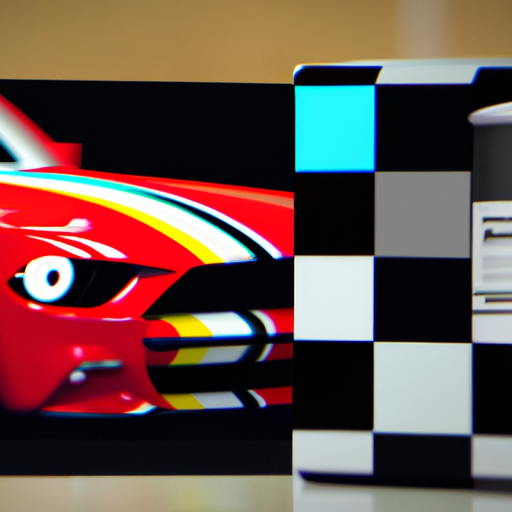-
Table of Contents
Automotive Product Packaging: Reflecting Speed and Precision
When it comes to the automotive industry, speed and precision are two key factors that drive success. From the manufacturing process to the final product, every aspect of the automotive industry is focused on delivering high-performance vehicles that meet the demands of consumers. However, one often overlooked aspect of the automotive industry is the packaging of automotive products. In this article, we will explore the importance of automotive product packaging and how it reflects the values of speed and precision.
The Role of Packaging in the Automotive Industry
Packaging plays a crucial role in the automotive industry for several reasons:
- Protection: Automotive products, such as spare parts, need to be protected during transportation and storage. Packaging ensures that these products are not damaged or affected by external factors such as moisture, dust, or temperature fluctuations.
- Branding: Packaging is an opportunity for automotive companies to showcase their brand identity. Well-designed packaging can create a positive impression on customers and reinforce brand loyalty.
- Efficiency: Proper packaging allows for efficient handling, storage, and transportation of automotive products. It ensures that products are organized, easily identifiable, and can be quickly accessed when needed.
The Need for Speed in Automotive Product Packaging
In the fast-paced automotive industry, speed is of the essence. From manufacturing to delivery, every step of the process needs to be optimized for efficiency. This includes packaging. Here’s why speed matters in automotive product packaging:
- Just-in-Time Manufacturing: Automotive manufacturers often follow the just-in-time manufacturing approach, where components and parts are delivered to the assembly line exactly when they are needed. Packaging plays a crucial role in ensuring that these components are readily available and can be quickly unpacked for use.
- Reduced Downtime: In the automotive industry, downtime can be costly. Packaging that is designed for quick and easy access to products can significantly reduce downtime during assembly or repair processes.
- Fast Delivery: With the rise of e-commerce, automotive products are increasingly being shipped directly to customers. Fast and efficient packaging ensures that products can be quickly prepared for shipping, reducing delivery times and improving customer satisfaction.
Precision in Automotive Product Packaging
Precision is another crucial aspect of automotive product packaging. Precision ensures that products are packaged correctly, labeled accurately, and fit for purpose. Here’s why precision matters:
- Product Integrity: Automotive products often have specific requirements for packaging, such as temperature control or protection from static electricity. Precision in packaging ensures that these requirements are met, preserving the integrity of the product.
- Regulatory Compliance: The automotive industry is subject to various regulations and standards. Precision in packaging ensures that products are labeled correctly, comply with safety regulations, and meet industry standards.
- Efficient Inventory Management: Precision in packaging allows for accurate inventory management. Proper labeling and identification of products enable efficient tracking and stock management, reducing the risk of errors and improving overall supply chain efficiency.
Case Study: Tesla’s Packaging Innovation
Tesla, the renowned electric vehicle manufacturer, is known for its innovative approach to packaging. The company’s packaging reflects its commitment to speed and precision. One notable example is Tesla’s packaging for its Model 3 electric vehicle.
Tesla designed a unique packaging system for the Model 3 that allows for efficient transportation and delivery. The packaging is designed to maximize space utilization, enabling more vehicles to be transported in a single shipment. This not only reduces transportation costs but also improves delivery speed.
Furthermore, Tesla’s packaging ensures the safety and protection of the vehicles during transportation. The packaging is designed to absorb impact and protect the vehicle from potential damage. This reflects Tesla’s commitment to precision and ensuring that their products reach customers in pristine condition.
The Future of Automotive Product Packaging
The automotive industry is constantly evolving, and so is automotive product packaging. Here are some trends that are shaping the future of automotive packaging:
- Sustainable Packaging: As sustainability becomes a priority for automotive companies, packaging is also being reimagined. Eco-friendly materials and packaging designs that minimize waste are gaining popularity.
- Smart Packaging: The integration of technology into packaging is on the rise. Smart packaging solutions, such as RFID tags or sensors, enable real-time tracking, temperature monitoring, and tamper-proofing.
- Customization: Personalization is becoming increasingly important in the automotive industry. Customized packaging that reflects the individuality of the product or customer is gaining traction.
Summary
Automotive product packaging plays a vital role in reflecting the values of speed and precision in the automotive industry. It ensures the protection of products, reinforces brand identity, and enables efficient handling and transportation. Speed in packaging is crucial for just-in-time manufacturing, reducing downtime, and fast delivery. Precision ensures product integrity, regulatory compliance, and efficient inventory management. Tesla’s innovative packaging for the Model 3 is a prime example of how packaging can reflect speed and precision. As the industry evolves, sustainable packaging, smart packaging, and customization are emerging trends that will shape the future of automotive product packaging.
